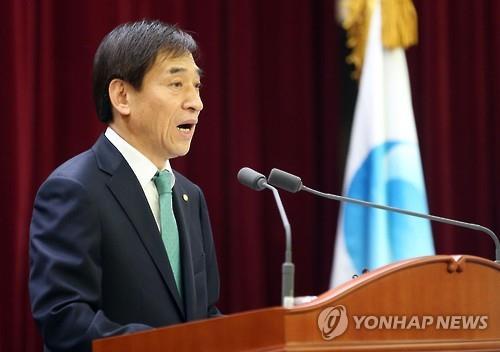South Korea's central bank will develop a supplementary economic indicator to offset the limitations of gross domestic product figures, its chief said Wednesday, attributing their falling credibility to the changing landscape of global industries.
In a bimonthly meeting with economists, Bank of Korea Governor Lee Ju-yeol said, "GDP has been a representative indicator that shows the size of an economy, the pace of its growth and its status of prosperity. But its credibility is on the decline as it fails to reflect the digital economy and the growing importance of the service sector."
 |
Bank of Korea Governor Lee Ju-yeol (Yonhap) |
Citing an article titled 'The prosperity puzzle' from the British weekly newspaper The Economist published on April 30, Lee said if a person listens to a free lecture on YouTube instead of going to a private institution, GDP numbers actually fall.
"GDP is increasingly a poor measure of prosperity. It is not even a reliable gauge of production and material well-being. It's time for a fresh approach," the article said.
The governor went on to say online shopping and Internet banking services promote conveniences for customers but that does not help GDP figures due to decreased jobs and facility investments.
Given this, downward revisions to GDP forecasts by 0.1 to 0.2 percentage points do not carry as much importance as it did in the past, the governor said, warning against heavy reliance on GDP figures in measuring the welfare of an economy.
His remarks come a day after the Korea Development Institute revised down its growth outlook for the local economy on Tuesday to 2.6 percent for this year from 3 percent forecast six months earlier.
The state-run think tank cited a continued slump in exports and sluggish demand in global markets as reasons for the downward revision.
The latest projection is the most pessimistic outlook yet offered by a local institute.
The BOK predicted 2.8 percent growth last month, while the Organization for Economic Cooperation and Development and the International Monetary Fund forecast a 2.7 percent expansion for Asia's fourth-largest economy. (Yonhap)








